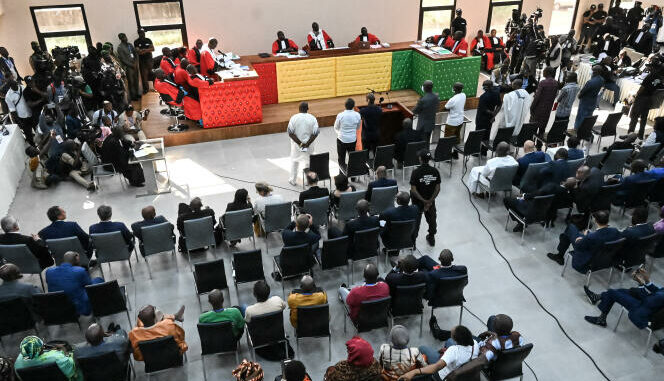
In a historic ruling, Guinea’s former dictator Moussa Dadis Camara and seven other military commanders have been found guilty of crimes against humanity for their role in the 2009 stadium massacre. The verdict, delivered in Conakry, marks a significant milestone in the country’s pursuit of justice and accountability.
The court sentenced Camara and his former police chief to 20 years in prison for ordering a brutal crackdown on unarmed protesters. The incident, which occurred at the Stade du 28 Septembre, resulted in at least 150 deaths and numerous rapes when soldiers opened fire on demonstrators opposing Camara’s presidential bid.
This trial, described as symbolic by lawyers representing survivors, signals a potential shift away from a culture of impunity in Guinea. However, the path to justice has been fraught with challenges, including prison breaks and multiple trial adjournments.
The verdict extends beyond Camara, with varying sentences handed down to other defendants. Notably, Aboubacar “Toumba” Diakité, who famously shot Camara in 2009, received a 10-year sentence.
While the trial has been hailed as a crucial step towards justice, concerns remain. Compensation for survivors is yet to be determined, and recent arrests of activists have raised questions about the current military administration’s commitment to human rights.
As Guinea grapples with its turbulent past, this verdict serves as a powerful reminder of the potential for accountability. It sends a clear message that even those in the highest positions of power can be held responsible for their actions, potentially paving the way for similar efforts across the region.
